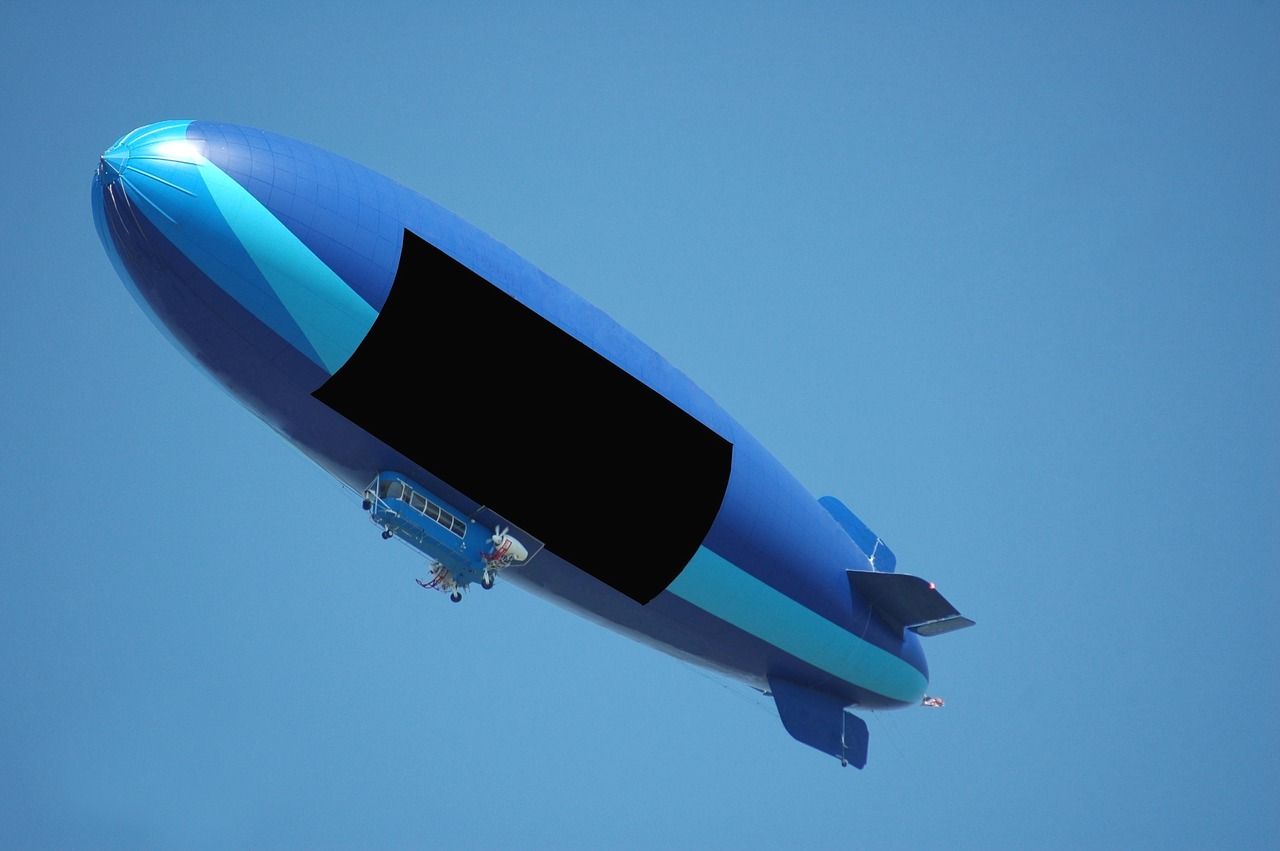Ambient advertising is a promotional tool that focuses on an informal message. In an effort to distinguish themselves from the competition, brands have started to adopt a more creative, unusual, interactive and non-traditional approach to advertising. What do urinals, park benches, elevators and subway handles have to do with it? Each of these items can be used as a carrier of marketing content.
Increased competition and changes in consumer behavior require companies to look for innovative solutions to reach their recipients. One of them is ambient advertising that no one can protect against. People look at the sky, and an airship with the logo of a famous brand hovers above their heads. They look at their feet and see stickers promoting the company. Ambient advertising includes, among others guerrilla operations, i.e. guerilla marketing. It also changes the elements of the environment with which consumers interact - e.g. footpaths, bus stops - in a creative and unexpected way, and makes those elements meaningful in the context of advertising.
Are you looking for innovative ways to show your brand?
Check what we recommend for you.
Ambient - advertising in a new version
Decades ago, with the slogan "advertisement", people immediately thought of posters, TV commercials, leaflets and the like. Back then, no one thought that advertising could be placed on ordinary items such as a bicycle seat or litter bins. Today ambient advertising, using BTL and ATL marketing, it is visible in various forms. What exactly is it? It is difficult to have an unambiguous definition. Determining what exactly ambient media are also seems elusive. An acceptable definition of the word "ambient" in marketing is to place advertisements in seemingly unconventional places. Using ambient media means reaching audiences through others communication channelsthan the "ordinary" media that people consume on a daily basis.
The term ambient advertising was coined in British media jargon in the late 1990s to describe products advertised in non-traditional or alternative media. In those days, four factors drove most companies to use ambient media. It was their versatility, effectiveness in reaching a wider audience, an increase in the demand for communication at points of sale and a gradual decline in the impact of traditional media. All this prompted more and more companies to look for more innovative and unconventional advertising tactics.

Ambient advertising can take any form - from shopping carts, to toilets and urinals, and even pizza boxes. Over the past two decades, there has been an explosion of many such forms of alternative advertising in our public spaces. Ambient advertising is deliberately placed where audiences go about their daily lives. In a fun and imaginative way, he uses or places objects in everyday spaces to convey a message on behalf of brands or organizations.
Ambient - advertising without flaws?
According to the available data, almost 26% of customers visit the websites of brands they learned about thanks to ambient advertising. This means that ambient advertising is an effective way of increasing internet traffic. Moreover, such data clearly shows that digital advertising is the only one communication strategy a relatively ineffective means of reaching potential customers. Companies realized this and started incorporating ambient marketing into their advertising campaigns. The use of unconventional advertising in an unobvious place promises a higher conversion rate. It also increases online traffic.
One of the most effective ways to gain brand popularity is to establish a thread of understanding with the recipient. This is one factor that companies are willing to use. Psychology dictates that when you see something that interests you, you want to share it with others. This underpins your ambient marketing strategy.

Statistics show that 56% customers are talking to other people about a fun, offbeat form of advertising that has captured their attention. This move effectively increases brand awareness and helps you win new customers at no extra cost. If I add to this that referral marketing is an excellent tool for building trust among customers towards the brand, the benefits of ambient advertising are obvious.
Actions ambient in Poland
Ambient advertising is a solution that allows a brand to stand out in a very competitive market. By reaching the places visited by the client with its message, ambient aims to build relationships with them, not to increase the reach or increase sales. Ambient advertising strengthens the emotional image of the brand, building a bond between the customer and the product.
In Poland, this was achieved, among others, by Danone. After the Danio Lekki stickers appeared on swimming pools, on lockers in fitness clubs, the respondents were able to name the elements on which they saw the advertisements. The recipients also remembered specific elements of the creation, thanks to which the spontaneous awareness of the brand increased. Danio's campaign was set in a specific context. She was led in places where women, that is target group, come to take care of their body. Ambient advertising, in this case focused on displaying the low calorific value of the product, resulted in the campaign being duly noticed.
Another example of ambient marketing in Poland was the use of urban space by IKEA. Ambient advertising appeared at bus stops, i.e. in places where potential customers of the network could be located. The furnished stops made it possible to wait for the bus on comfortable sofas.

Since ambient advertising means so many benefits, how to explain the still small presence of this form of advertising in Polish advertising? There are several barriers to the development of the ambient market in Poland. They include, among others lack of courage of companies in preparing interesting creations and limited advertising budget. On the other hand, there are formal obstacles - administrative procedures, the need to obtain various permits to conduct this type of action. Another issue is the lack of a developed standard for measuring the effectiveness of ambient.
What distinguishes ambient advertising from traditional?
Ambient advertising emphasizes on tactics. It focuses on surprise and often takes a humorous form. It has to be creative, catchy and intriguing, and it is best if it additionally engages the audience - the addressee's participation in the ambient action strengthens the message. In the case of ambient campaigns, the interest of the addressees of the content increases thanks to making it difficult for them to selectively perceive the advertisement - of course, reading the message cannot take too long.
What is characteristic of ambinet ads is the metaphorical nature of their message. Thanks to this unconventionality, the recipient focuses attention on decoding and processing the message, which makes it better remembered. The need to decode the ad on its own allows the sender to build interaction with the recipient. It gives him the feeling of being an explorer, which helps him identify himself better with the content of the message. As a result, such an attitude increases the effectiveness of marketing communication. In addition, it builds a sense of community through a sense of belonging to a selected group of recipients.
Is ambient marketing for everyone?
Ambient advertising creates publicity and buzz around the product. Thanks to it, the brand becomes more recognizable. It begins to be perceived as modern and innovative. Importantly, people are more likely to identify with brands that are perceived as innovative, original and bold. Consumers talk about such brands spontaneously, with interest and curiosity.
As many as 90,91% respondents estimate that ambient advertising is an effective form of communication between a company and a potential client. Consumers are bored and irritated by classic advertising. Most of them are not significantly different from each other, they are not memorable.

Audiences need other options to reach them with your advertising message. Ambient advertising is therefore a great idea for companies that are thinking about development in the long term. Carrying out ambient actions that will attract attention and will be remembered is more profitable than investing in ads that generate momentary sales.

